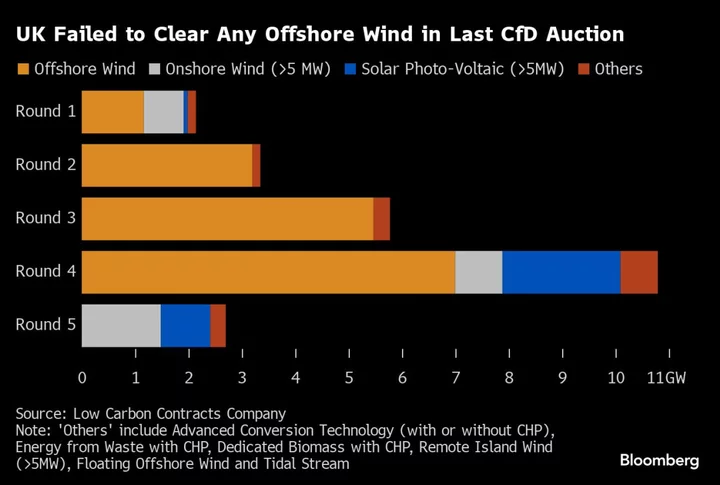The hottest June on record has been followed by an early July that now includes 10 of the hottest days in history. Simultaneous heat waves are suffocating the US, much of Europe and parts of Asia, while El Niño intensifies in the Pacific Ocean and the Atlantic waters off Florida hit an unprecedented 90F (32.2C). It’s already enough to put 2023 on a likely trajectory to become the warmest year since record-keeping began in the 1800s.
Since October 2019, the research nonprofit Berkeley Earth has been analyzing each month’s global temperatures and issuing predictions for the year’s ultimate rank in terms of heat. Its latest analysis, published July 11, found “a fairly high chance — above 80% at this point — that 2023 will be the warmest year on record,” says Zeke Hausfather, a Berkeley Earth climate scientist.
Researchers will finalize annual temperature rankings in January. To date, the hottest year on record is a tie between 2016 and 2020.
For longtime climate observers, the summer’s breakneck pace of temperature records is a grim pattern long predicted, and one with little chance of breaking. “I’ve been expecting this for 20 years,” says Camille Parmesan, a professor at the National Center for Scientific Research and an Intergovernmental Panel on Climate Change report author. “This is just going to keep happening given that we’re not reducing emissions.”
Earth has already warmed 1.2C since the preindustrial era due to growing greenhouse gas emissions in the atmosphere. This has resulted in a clear trend: 22 of the last 23 years were the hottest ever, according to NOAA. The only way to stop this trend, climate scientists have repeatedly warned, is for people to dramatically and immediately cut their climate pollutants, mainly through ditching fossil fuels.
High among the factors pushing this year’s unparalleled heat trajectory is the aforementioned El Niño, the first in nearly four years. The Pacific basin covers one-third of the planet and is subject to the El Niño-Southern Oscillation, which ping-pongs the ocean’s temperatures between cold and warm phases. This year started off in the La Niña phase, officially switching to El Niño in June.
“Every time we have an El Niño event, we get a small peek into the future. This is what is going to be the new normal for the climate in 5 to 10 years if our emissions keep at current levels and don’t decrease rapidly,” Hausfather says. “So we’re going to have slightly higher than normal temperatures this year and next, but long-term climate change is going to quickly push the planet to these levels of heat all the time.”
Worsening climate change is driving up the frequency and intensity of extreme weather events, and this summer is no exception. Heat waves have plagued Japan, India and the US, which has also struggled with devastating flooding in the Northeast. Drought now grips Europe, following record spring heat in the Mediterranean. Canada is wrestling with out of control wildfires, which have unleashed waves of dangerous smoke on millions of people across North America.
El Niños are just another type of extreme event that have also gotten stronger in recent decades due to climate change. “Since 1950, El Niños have been significantly stronger than any time from 1400 to 1950,” Parmesan says, citing a 2021 IPCC report she helped write.
“We haven’t had an El Niño event at this level of global warming,” says Brown University’s climate scientist, Kim Cobb. “Maybe that’s an obvious statement but I think it still needs to be said.” The implication is we don’t really know what’s in store, Cobb warns, adding that the El Niño is only just beginning “and it’s forecast to get quite a bit stronger.”
Berkeley Earth’s estimated odds for 2023 as the hottest year increased as the year went on; if the El Nino persists and intensifies, 2024 could be hotter. After January, the group noted that 2023 had a 14% chance of being the hottest year; by the end of May, it had risen to 54%. Then came a stunningly hot June. Declared the warmest on record by Berkeley Earth, the US National Centers for Environmental Information and the European Union's Copernicus Climate Change Service, it beat out by a significant margin a previous set in 2022.
Even more disasters are expected to plague communities as the year continues, amid an especially hot summer and fall. Or as Hausfather puts it: “A lot of bad stuff.”









